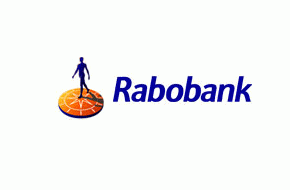
Content supplied by Rabobank

In its latest beef research report, Australian and New Zealand beef industry – looking beyond the price peak, agribusiness banking specialist Rabobank says while New Zealand farmgate prices are expected to remain around current levels in the short-term, they will then come under pressure as global beef production, and indeed total animal protein production, increases.
This will likely see prices ease, albeit to trade in a higher-than average range out to 2020, the report says.
In light of this outlook, the Rabobank report says New Zealand beef producers need to take a cautious, yet optimistic, approach – particularly those producers purchasing stock, looking to rebuild or expand production.
“New Zealand farmgate prices have fallen from the peaks of late-2014, however they are still amongst the highest of all key producing countries in the world,” says report author Rabobank animal protein analyst Matthew Costello, “and in our view, this high pricing cannot be sustained in the medium to long term.”
Mr Costello says New Zealand farmers do not have to look back too far for evidence of how quickly unsustainable pricing can place pressure right along the supply chain.
“Those in the lamb industry will remember how quickly New Zealand farmgate prices fell when consumers pushed back from record-high prices at a time when the economic environment was weak post-GFC, with New Zealand lamb prices falling by around 40 per cent in the space of 16 months,” he said.
“While this example should act as a cautionary tale, we don’t expect a price fall of this severity in the beef sector. Rabobank is anticipating farmgate beef prices to ease, albeit to settle in a higher average price range as we move towards 2020, compared to historic average levels.”
Six key sector developments
Mr Costello said Rabobank’s view was based on the analysis of six key developments that will influence farmgate prices in coming years – lower domestic production, record global beef production, increased competition from cheaper proteins, China’s role in global trade, market access and currency movements.
“On balance, these developments underpin a positive outlook for the New Zealand beef industry,” Mr Costello says, “however, there are likely to be some headwinds from increasing global beef production, which is set to reach record levels by 2020, and competition from cheaper animal proteins.”
Mr Costello says lower domestic supply is the most positive driver to underpin New Zealand cattle prices out to 2020.
“Domestic production was particularly high in the 2014/15 season as a result of herd liquidation in the dairy sector, but we expect to see production reduce as it returns to more traditional levels in coming seasons,” he says. “Furthermore, there is expected to be a shortage of beef availability from New Zealand’s major competitor, Australia, as they rebuild their drought-induced herd.”
It is a different story globally, however, with the report forecasting record global beef production by 2020.
“We are expecting an additional five million tonnes of beef to be produced by 2020, compared to the global level of production reported in 2015,” he says, “mainly driven by the US and Brazil, and increasingly Argentina.” However, not all of this will hit global trade, he says.
The Rabobank report forecasts around 1.5 million tonnes of this increased global production will be exported, with most of the product expected to go to non-traditional or emerging beef markets such as China.
“With Rabobank expecting Chinese demand to outstrip their domestic production by around 1.5 to two million tonnes over the next five to 10 years, China has the potential to absorb all the exported beef that is forecast to hit the market in coming years,” Mr Costello says.
Competition will also increase from other animal protein sources, he says, with record production across all major animal proteins set to ensure competitive prices for consumers, making the substitution from beef to cheaper proteins increasingly appealing.
The report also highlights the importance of “staying ahead of the competition” through free trade agreements (FTA) and removal of technical trade barriers, with New Zealand’s FTA with South Korea and tariff-free arrangement with China expected to derive great benefits out to 2020.
Supply chain collaboration and integration
Mr Costello says while “future price fluctuations are inevitable”, driven by the six key factors influencing global beef markets, the New Zealand industry’s exposure to these swings could be better managed by greater collaboration and innovation across the supply chain.
“This may take the form of increasing the value and usage of co-products, further differentiating New Zealand beef from that of its competitors, identifying new consumers in both traditional and emerging markets or developing more risk management solutions such as forward contracts,” he says.
“This will help extract more value along the supply chain and reduce volatility in what is a typically ‘boom/bust environment’, which inherently increases risk and uncertainty for all participants along the supply chain."
“And we are currently seeing this in the processing sector, with margins for some processors under pressure due to the disparity between high procurement and weak export prices.”
We welcome your comments below. If you are not already registered, please register to comment
Remember we welcome robust, respectful and insightful debate. We don't welcome abusive or defamatory comments and will de-register those repeatedly making such comments. Our current comment policy is here.